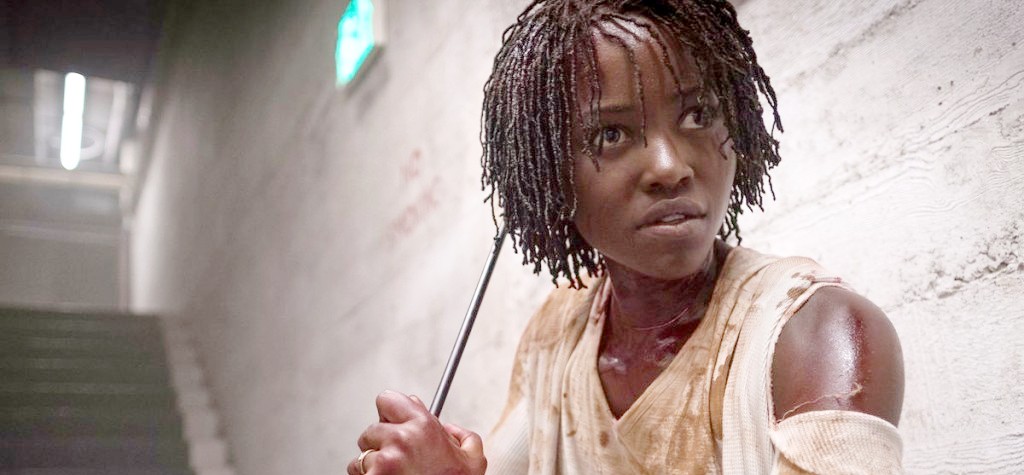Remember when not every movie prompted talk of sequels? It may be hard to remember a time when most films were one-offs, with clear and definitive endings, audiences usually fine not knowing about its characters’ futures. Today it’s de rigueur for every hit movie to inspire a potential follow-up. That being said, if Jordan Peele’s latest horror blockbuster Us gets a sequel, it probably won’t be with star Lupita Nyong’o.
The Oscar-winning actress was at Deadline’s The Contenders symposium on Saturday, fresh off being named Best Actress by the New York Film Critics Circle for her double duty turn as both an everywoman mother and as her “Tethered” doppelganger, hell-bent on taking her other self out. Still, Nyong’o isn’t into trying to repeat that success.
“No thanks. Red is dead,” Nyong’o said, point blank.
Peele has talked about perhaps sequelizing Us, delving more into its unique world, in which every living person has an exact double living underground, wishing to rise to the surface. It’s only been talk, though, which is good news for Nyong’o, who talked about how the roles were “very, very challenging.” (Besides, Peele is busy with, among many other projects, a “spiritual sequel” to Candyman.)
“I had to hold down both sides of the argument,” she added. “I had to be the offender and the offended. It was about understanding the emotional landscape of each character but also having a very strict discipline to play both physically and mentally.”
Nyong’o also delved into the deeper meanings of the film, which is purposefully opaque and, unlike the straight-forward Get Out, open to interpretation.
“This movie is an externalization of our monster. It’s a movie that explores who we think of as the enemy. Often times we’re very eager to paint people across the border, or from a different religion, or a different creed, or culture, as the enemy. It’s easier to project that. But what happens when we look at ourselves? What are the enemies within ourselves?”
She concluded, “For me, what I found I related to was that identifying with that inner monster inside me.”
(Via Deadline)







